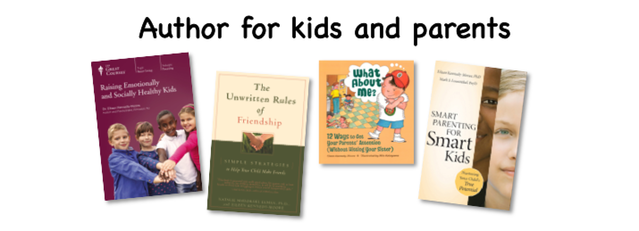
Most kids agree that “talking behind someone’s back” is unkind, but they do it anyway. A lot.
Gossip is common but not necessarily mean
Kristina McDonald at Duke University and her colleagues videorecorded pairs of fourth grade girls who were close friends while they had a conversation. On average, during the 15-minute conversations, the girls engaged in 36 episodes of gossip, involving 25 different people.
Examples of gossip comments included:
“She thinks she’s all that because she’s got a chest!”
“Her and her friends, they just make fun of me."
“He’s cute. I like him.”
Most of the gossip recorded in this study was not mean. Over half of the comments just involved sharing information. Another quarter were for entertainment and involved sharing a laugh or an interesting story. Only 7% of the gossip comments were aggressive remarks that could hurt someone’s social standing.
The benefits of gossip
People are interesting. Gossip makes up about two-thirds of the naturally occurring conversations of adult men and women, so it’s unrealistic to expect kids never to gossip. And sometimes the information learned from gossip can be useful for navigating the social world
Gossip can have a positive side: It can help children figure out peer group relationships. Talking about others helps kids understand what behaviors are or are not valued by peers, who is or isn’t getting along with whom, and who is or isn’t trustworthy. Just as adults need to be at least somewhat clued into the grape vine at work or in their communities, kids need to know what’s going on with their peers.
Gossip can also create a sense of intimacy, because it involves shared confidences. Both kids and adults are more likely to gossip with friends than with strangers.
Gossip can hurt
On the other hand, it’s also important to help kids understand that they can hurt someone badly through gossip. Reputations can go down quickly, but they’re hard to repair. If you or your child has been the subject of mean gossip, you know how cruel words can hurt reputations and feelings. Spreading false rumors is a vicious thing to do. Sharing unflattering information or judgments about someone is unkind, and sadly, often the weapon of choice among adolescent girls.
Gossip can also lead to conflict. Here’s a situation that comes up often: One girl says something mean to a second girl about a third girl. The second girl, thinking she’s being a loyal friend, tells the third girl about the first girl’s comments. The third girl is then mad at the first girl for making the comments, and the first girl is mad at the second girl for blabbing. Tears and ugly drama ensue.
Urge your child not to repeat mean comments—to the target of the comments or anyone else. That just spreads meanness. If she hears a mean comment, she can say nothing and let the rumor die a natural death or say something like, “Well, I’m sure there’s a good reason why she did that,” or “I wonder if that’s what really happened,” or even “Hmmm, she seems to like you...”
Has your child been hurt by gossip?
Related posts:
Children's Growing Friendships
__
© Eileen Kennedy-Moore, PhD. Google+ Twitter: psychauthormom
Eileen Kennedy-Moore, PhD, is an author and clinical psychologist in Princeton, NJ (lic. # 35SI00425400). She frequently speaks at schools and conferences about parenting and children’s social and emotional development. www.EileenKennedyMoore.com
Subscribe to Dr. Kennedy-Moore’s monthly newsletter to be notified about new posts on the Growing Friendships blog.

Dr. Kennedy-Moore's books and videos:
-- Have you ever wanted a parenting course you could do at YOUR convenience? Check out this fun and fascinating audio/video series on children’s feelings and friendships from The Great Courses®: Raising Emotionally & Socially Healthy Kids. || Topics include: Teaching Kids to Care; Developing Genuine Self-Esteem; How Kids Manage Anxiety and Anger; Playing Well With Others; Growing Up Social in the Digital Age. VIDEO preview.
On sale 70% off at: www.TheGreatCourses.com/Kids
-- Smart Parenting for Smart Kids: Nurturing Your Child's True Potential || Chapters include: Tempering Perfectionism; Building Connection; Developing Motivation; Finding Joy. VIDEO preview.
-- The Unwritten Rules of Friendship: Simple Strategies to Help Your Child Make Friends || Chapters include: The Shy Child; The Little Adult; The Short-Fused Child; The Different Drummer.
-- What About Me? 12 Ways To Get Your Parents' Attention Without Hitting Your Sister. VIDEO preview.
Growing Friendships blog posts are for general educational purposes only. They may or may not be relevant for your particular situation. You’re welcome to link to this post, but please don’t reproduce it without written permission from the author.
photo credit: “The Whisper” by Brian Smithson / CC BY 2.0
__
For further reading:
Feinberg, M. Willer, R. Stellar, J., & Keltner, D. (2012). The virtures of gossip: Reputational information sharing as prosocial behavior. Journal of Personality and Social Psychology, 102, 1015-1030.
Ingram, G. P. D. (2014). From hitting to tattling to gossip: An evolutionary rationale for the development of indirect aggression. Evolutionary Psychology.
McDonald, K. L., Putallaz, M., Grimes, C. L., Kupersmidt, J. B., & Coie, J. D. (2007). Gossip, friendship, and sociometric status. Merrill-Palmer Quarterly, 53, 381-411.




